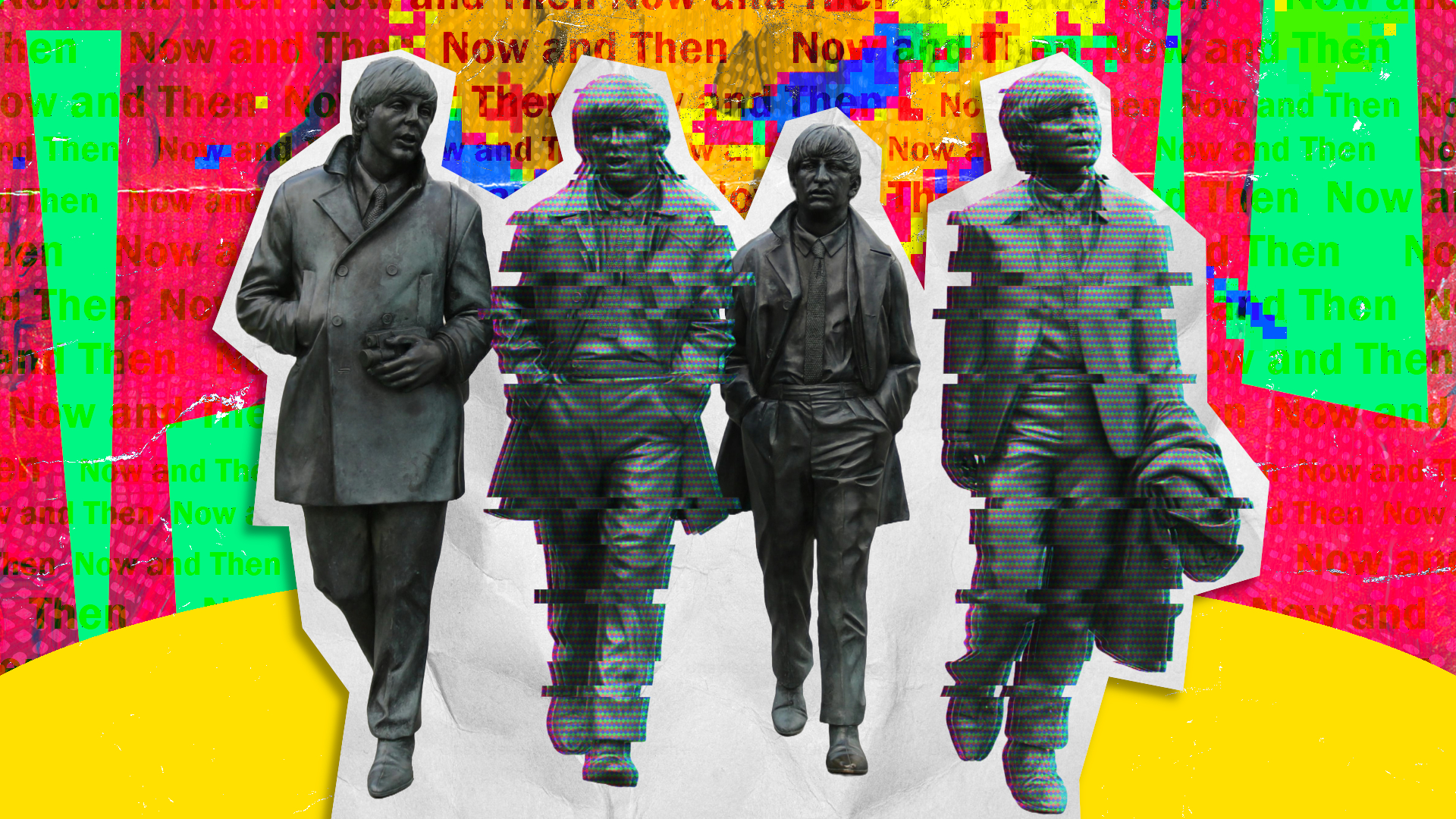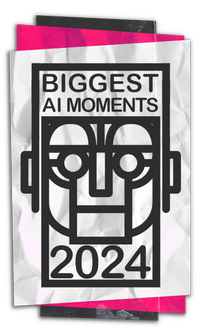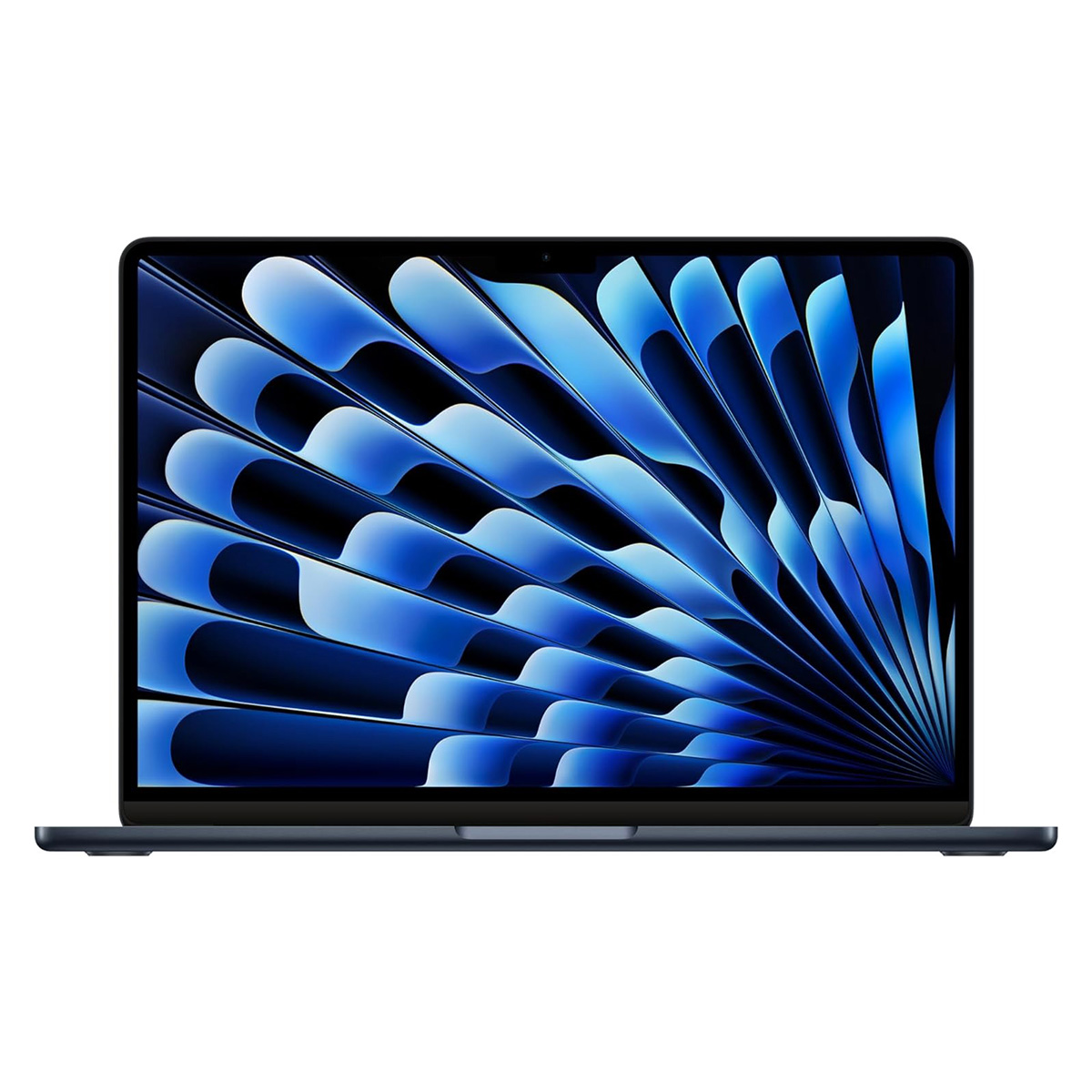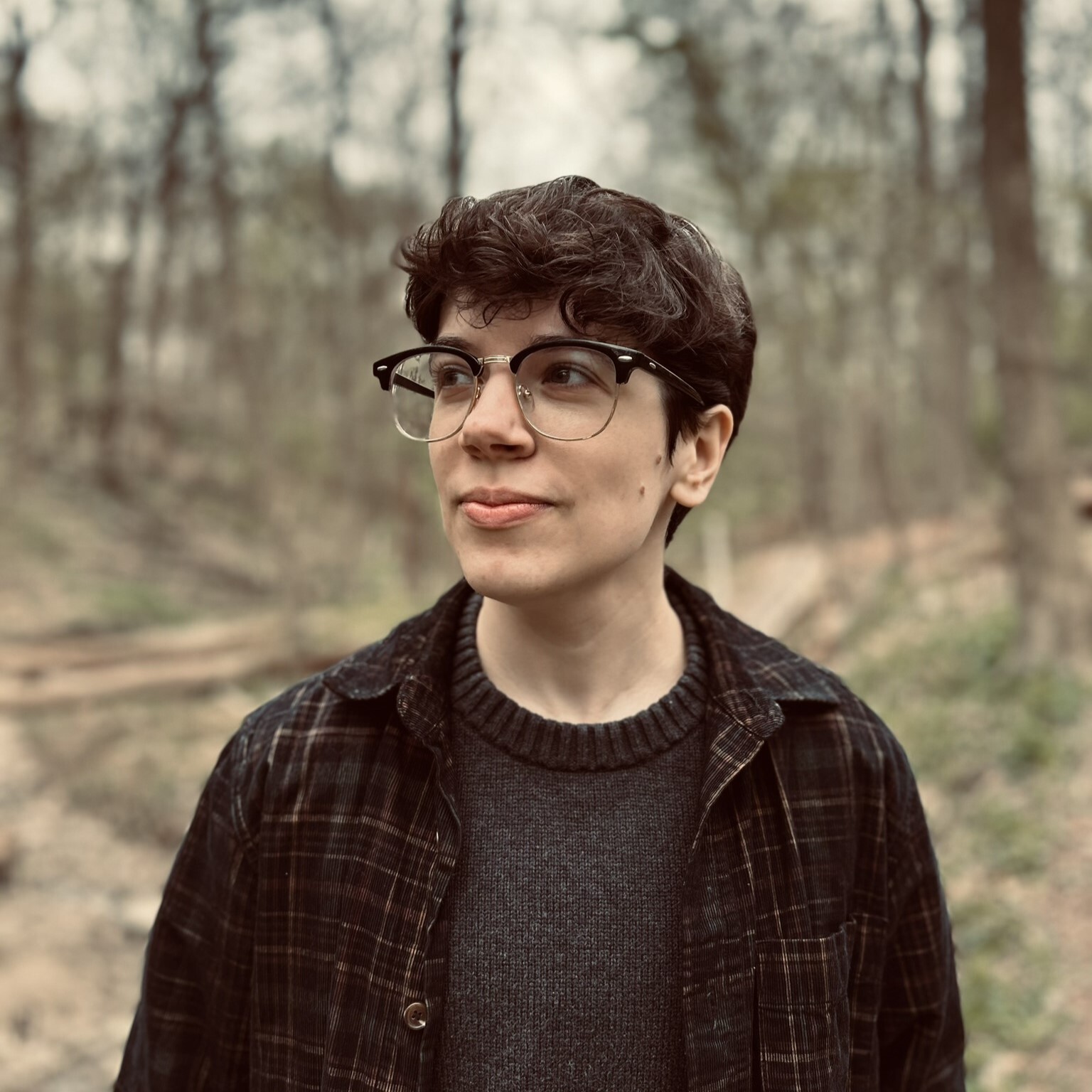In 2024, a controversial Beatles song made Grammy history and raised eyebrows
Every "Now and Then," a band changes the music landscape, in 2024, it was The Beatles (again).


On November 8, 2024, the Beatles were once again making history in the music industry. For the first time since 1997, the band was shortlisted for the Grammys, bringing their lifetime nomination count to 25 (seven of which they've won). However, that wasn't the only reason the group was making headlines.
Hailed as 'the last Beatles song,' 2023's "Now and Then" was nominated in both Record of the Year and Best Rock Performance award categories, but more importantly, it was the first AI-assisted song to receive a Grammy nomination.
To purists, this was sacrilege, with AI's bubbling influence on the music industry viewed as a growing stain by many.
However, to the remaining members of the Beatles, AI allowed them to see out the final chapter of a decades-long journey to honor the memory of their friend and bandmate, John Lennon.
In a short documentary released alongside the track, Sir Paul McCartney ponders the ethical dilemma out loud, "Is it something we shouldn't do?"
"Let's say I had the chance to ask John, 'Hey John, would you like us to finish this last song of yours?' I'm telling you. I know the answer would've been 'Yeah!' He would've loved that."
It's easy to paint AI as a threat to the future of music. However, despite its controversy, "Now and Then" hints at the potential for a harmonious path forward for AI and artists.
This article ranks at #16 in our round-up of the year's 24 most impactful moments in artificial intelligence. For the full rankings and more articles like this, check out the Biggest AI Moments of 2024 — a Laptop Mag Special Issue.
Inspiration or infringement? AI's bubbling impact on the music industry
AI-generated music has become increasingly popular in 2024 following the release of music-generation apps like Suno, which allow users to create music from scratch using basic text prompts — partly leading to one of the biggest music trends of 2024: an explosion in AI-generated lo-fi (low-fidelity) music.
If you search for lo-fi content on a site like YouTube, there's a good chance you'll unknowingly end up listening to a playlist populated by tracks created by phantom artists using tools exactly like this one.
Unsurprisingly, record labels are concerned about the growth of AI-generated music. After all, one has to wonder how the algorithms that power AI music generation apps were trained.
In the case of Suno, at least, there's no need for speculation. The developers have admitted to using copyrighted music from major labels to train their AI following the June 2024 filing of a copyright infringement lawsuit by the Recording Industry Association of America (RIAA).
However, Suno claims innocence, stating in an August 2024 blog post, "The major record labels are trying to argue that neural networks are mere parrots — copying and repeating — when in reality model training looks a lot more like a kid learning to write new rock songs by listening religiously to rock music."
The Beatles strike a chord, and a balance, on AI's involvement in the arts
In June 2023, the Recording Academy, the organization that oversees the Grammys, released updated rules putting strict guardrails on the use of AI in music. The new rules clarified that "A work that contains no human authorship is not eligible [for a Grammy Award] in any category."
This update was, in part, a response to a wave of AI-generated cover songs that swept the Internet in 2023. The Recording Academy's position was clear: only music created by humans will be eligible for awards.
Luckily, the AI-assisted Beatles song was written by a human: the late, great John Lennon. "Now and Then" was originally a demo captured on cassette around 1977, three years before the songwriter's untimely demise.
A 1994 Beatles revival saw Lennon's wife, Yoko Ono, release several demo tapes to the surviving bandmates, leading to the production of two new Beatles songs: "Free as a Bird" and "Real Love." Sadly, production difficulties and technical limitations failed to separate the piano and vocals clearly on the track "Now and Then," so it was set aside once again.
In 2022, filmmaker Peter Jackson teamed up with the two remaining Beatles, Paul McCartney and Ringo Starr, to use machine learning (a process called "stem separation") to recover Lennon's voice from the original recordings.
With AI helping to isolate the vocal and piano tracks, McCartney and Starr could finally complete the recording, releasing the last Beatles song on November 2, 2023.
We won't know whether "Now and Then" claims victory at the Grammys until February 2025. However, it may already have won over some with its careful adoption of today's technology.
The Beatles' use of AI in music starkly contrasts what most might imagine: A generative AI algorithm spitting out track after track of quick-and-cheap covers. AI was simply a tool in the Beatles' kit, not a replacement for the band itself.
"Now and Then" gives us a glimpse into AI's role in the future of music, a role increasingly sparking controversy among artists and fans alike.
Importantly, The Beatles' use of AI was open, ethical, and faithful to the creative process, and it was done with the consent of Lennon's family. "Now and Then" may not have bridged the growing divide created by AI in the music industry, but it is an excellent example of how artists can apply this technology positively.
Speaking to Radio 4 in the UK, McCartney may have said it best, "I'm not on the internet that much [but] people will say to me, 'Oh yeah, there's a track where John's singing one of my songs,' and it's just AI, you know?
"It's kind of scary but exciting because it's the future. We'll just have to see where that leads."

If you're anything from an AI enthusiast to the average AI tinkerer (or simply seeking out some of the additional features offered through Windows Copilot+ PCs or Apple Intelligence on Macs), then you'll need a powerful and performative laptop to keep up to speed with your needs.
At Laptop Mag, we review laptops year-round to ensure we're giving you expert-backed and up-to-date recommendations on which notebook is right for you. When it comes to the best AI PC category, our top picks are the excellent Asus Zenbook S 14 (UX5406) for Windows users and the impressive Apple Macbook Air M3 for those running macOS.
So, if you're shopping for a new laptop and looking to invest in an AI PC (or just a great laptop in general), check out our current top-tier picks below.

We love the MacBook Air 13 M3. Starting at just $1,099 (MSRP), with education pricing dropping to $999 (MSRP), the Air is a laptop we can recommend for just about any purpose. It's affordable, especially by Apple standards, and it features an excellent keyboard, fantastic performance, and outstanding endurance (over 15 hours of battery life), which makes it a great laptop for just about anyone's needs, especially those interested in getting to grips with all of the latest Apple Intelligence features.

The Asus Zenbook S 14 (UX5406) has quickly become our favorite AI PC laptop of the year, offering all the hallmarks of a great buy, including exceptional performance and battery life. This laptop is one of the first to feature an Intel Core Ultra 200V series processor and at just $1,499 (MSRP), you get a fantastic balance of power, a stunning 14-inch OLED display, effortless multitasking, NPU-enhanced performance for AI tasks, and all of the additional Copilot+ features available with Windows 11.

Stevie Bonifield is a freelance tech journalist who has written for PC Gamer, Tom's Guide, and Laptop Mag on everything from gaming to smartwatches. Outside of writing, Stevie loves indie games, TTRPGs, and building way too many custom keyboards.


